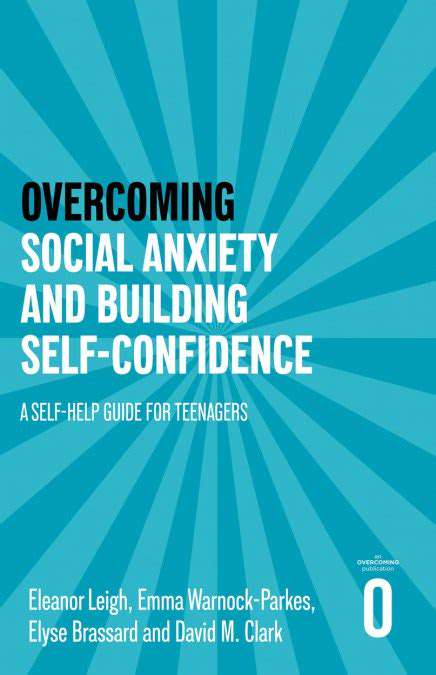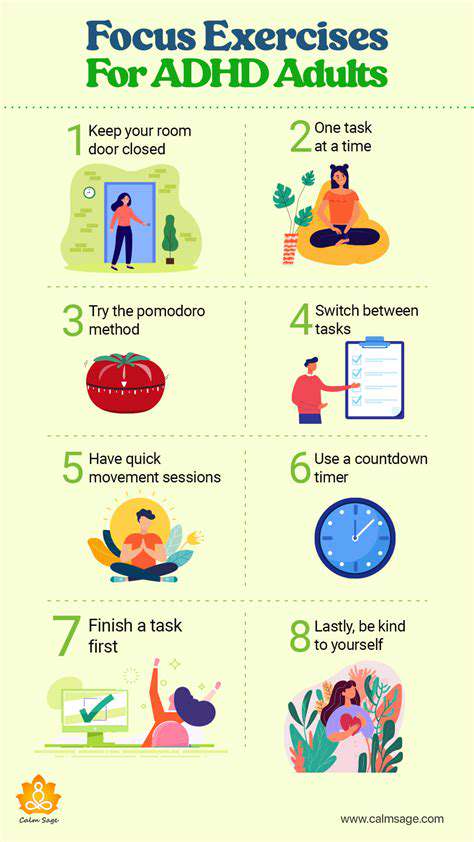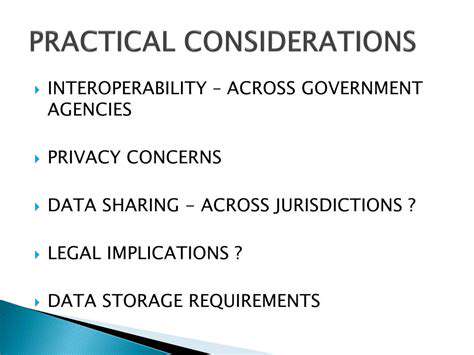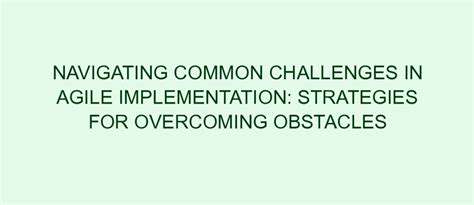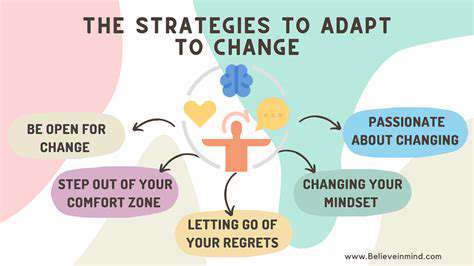Guide to Practicing Empathy Daily
Empathy is not just a theoretical concept; it's a skill that can be practiced and honed in daily life. This can manifest in simple acts of kindness, like offering help to someone who is struggling, or actively listening to a friend's concerns. Practicing empathy in our professional lives can lead to stronger teamwork, improved communication, and more productive interactions with colleagues and clients. In essence, actively incorporating empathy into daily interactions creates a more supportive and understanding environment.
The Long-Term Benefits of Empathy
Cultivating empathy has numerous benefits that extend far beyond the immediate interaction. It fosters stronger relationships, builds trust, and promotes understanding in personal and professional settings. Empathy also contributes to a more compassionate and inclusive society by allowing us to connect with others on a deeper level and address societal challenges with greater understanding and empathy. Ultimately, practicing empathy leads to a more harmonious and fulfilling life for ourselves and those around us.
The Importance of Active Listening
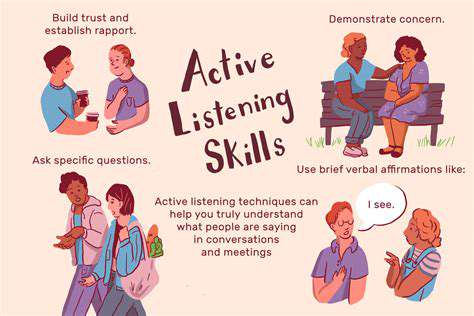
Understanding the Fundamentals of Active Listening
Active listening is more than just hearing; it's a conscious effort to fully comprehend the speaker's message, both verbally and nonverbally. This involves paying close attention to the speaker's words, tone of voice, body language, and even their emotional cues. It's a skill that requires focus and concentration, and it's a crucial component of effective communication in all aspects of life.
Truly understanding the speaker's perspective is vital. It requires setting aside your own thoughts and biases to focus solely on what the other person is saying. This fosters a deeper connection and a more meaningful exchange.
Improving Communication Through Active Listening
Effective communication hinges on the ability to listen actively. When we actively listen, we create a safe and supportive environment where the speaker feels heard and understood. This results in a more open and honest exchange of ideas, leading to stronger relationships and better outcomes.
Active listening prevents misunderstandings and fosters clarity, both in personal and professional settings. By fully engaging with the speaker, we can ensure that our responses are well-informed and aligned with their intentions.
The Impact of Active Listening on Relationships
Active listening significantly strengthens interpersonal relationships. When individuals feel heard and valued, trust and respect naturally develop. This creates a foundation for stronger bonds and more meaningful connections.
Open communication and empathy are fostered through active listening, leading to healthier and more fulfilling relationships in all aspects of life, from personal connections to professional collaborations.
Active Listening in Professional Settings
In professional environments, active listening is essential for effective teamwork and leadership. By actively listening to colleagues, managers, and clients, we can gain valuable insights and understand diverse perspectives, which are crucial for problem-solving and decision-making.
Active listening promotes collaboration and trust within teams. It allows for a more thorough understanding of project requirements and individual needs, ultimately leading to more successful outcomes.
Overcoming Barriers to Active Listening
Several factors can hinder effective active listening, including distractions, preconceived notions, and a tendency to interrupt or formulate responses before the speaker has finished. Recognizing these barriers is the first step towards overcoming them.
Developing strategies to mitigate distractions and focusing on the speaker's message are key to effective active listening. Mindfulness and conscious effort are crucial for improving this crucial skill.
The Benefits of Active Listening for Problem-Solving
Active listening is instrumental in the problem-solving process. It allows us to gather comprehensive information, understand different perspectives, and identify potential solutions that might otherwise be overlooked. By fully comprehending the problem from various viewpoints, we can craft more effective and comprehensive solutions.
Active Listening and Emotional Intelligence
Active listening is intrinsically linked to emotional intelligence. It involves not only understanding the speaker's words but also recognizing their emotions and empathizing with their situation. This fosters deeper understanding and stronger connections.
Empathy and perspective-taking are critical components of active listening and emotional intelligence, enabling us to respond thoughtfully and appropriately in various social situations.
Putting Yourself in Another's Shoes: Perspective-Taking Exercises
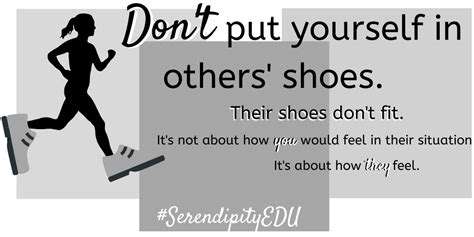
Understanding Perspective
Stepping into another person's shoes, literally or figuratively, is a crucial aspect of empathy. It involves actively trying to see the world from their point of view, considering their unique experiences, background, and circumstances. This requires a conscious effort to set aside your own biases and preconceived notions and to approach the situation with an open mind. This process is essential for building stronger relationships and fostering a more compassionate society.
Empathy is not just about feeling sorry for someone; it's about truly understanding their feelings and motivations. It's about recognizing the potential reasons behind their actions, even if those reasons are different from your own. This understanding can lead to more constructive communication and conflict resolution.
Recognizing Different Experiences
Every individual has a unique life history, shaped by a multitude of factors including family, culture, education, and personal experiences. These factors profoundly influence their perceptions, values, and beliefs, shaping their understanding of the world around them. Acknowledging and respecting these differences is fundamental to fostering empathy and understanding.
It's important to recognize that different people may have vastly different experiences related to the same issue. What one person considers a minor inconvenience, another may perceive as a major crisis.
Considering Different Motivations
People's motivations are often complex and multifaceted. They are driven by a variety of factors, including personal needs, desires, and values. It is crucial to acknowledge the possibility of multiple motivations behind any given action or behavior.
We must strive to understand the underlying reasons for others' choices, recognizing that their motivations may be different from our own. Understanding these motivations, even if they differ from our own, is key to building bridges of understanding and respect.
Cultivating Active Listening
Active listening is a vital component of putting yourself in another's shoes. It involves paying close attention not only to the words being spoken but also to the nonverbal cues, such as body language and tone of voice. This allows you to gain a deeper understanding of the speaker's emotions and perspective.
By truly listening, rather than just waiting to respond, you create space for the other person to express themselves fully. This fosters a sense of validation and encourages open communication.
Practicing Perspective-Taking
Developing the skill of perspective-taking requires consistent practice. It's not something that happens overnight. It requires a conscious effort to step outside of your own comfort zone and consider the world from different viewpoints. This might involve engaging in conversations with people from diverse backgrounds, reading literature from different cultures, or even simply observing the world around you with an open mind.
Regularly practicing perspective-taking can significantly enhance your ability to understand and connect with others on a deeper level.
Embracing Emotional Intelligence
Emotional intelligence (EQ) plays a significant role in the ability to put oneself in another's shoes. It encompasses the ability to understand and manage your own emotions, as well as recognize and respond to the emotions of others. Developing emotional intelligence involves self-reflection, empathy, and the ability to regulate your responses to challenging situations.
Strong emotional intelligence allows you to navigate social interactions with greater sensitivity and compassion, ultimately leading to more fulfilling and meaningful relationships.
For those with limited time for dedicated plant care, selecting the right species is crucial. Low-maintenance plants often require minimal watering and indirect light, allowing you to enjoy the benefits of greenery without the constant worry of meticulous upkeep. These plants are perfect for beginners who want to experience the joy of houseplants without the pressure of intensive care. Think about your lifestyle and how much time you can realistically dedicate to plant care before making a commitment. Easy-care options like snake plants, ZZ plants, and spider plants are excellent choices for beginners who are looking for a rewarding plant-keeping experience without the daily regimen of watering and pruning.
Responding with Compassion and Respect
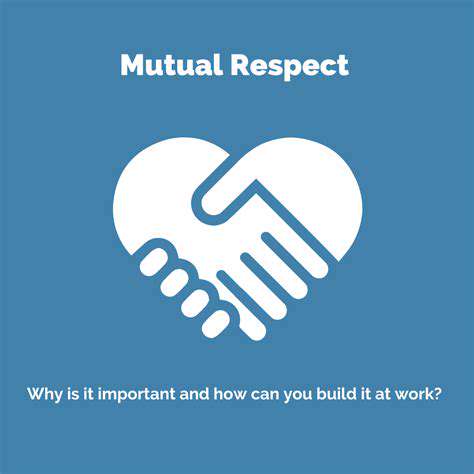
Responding with Empathy and Understanding
Demonstrating compassion and empathy is crucial in navigating challenging situations. It involves actively listening to others, acknowledging their feelings, and responding in a way that validates their experiences. Understanding the root causes behind their emotions is key to effective communication and building rapport. This empathetic response fosters a sense of connection and trust, creating a safe space for open dialogue and problem-solving.
When individuals feel heard and understood, they are more likely to feel comfortable expressing themselves fully. This open communication fosters a deeper understanding of the situation and promotes collaborative solutions. Cultivating empathy requires a conscious effort to step into another person's shoes and see things from their perspective.
Active Listening and Validation
Active listening goes beyond simply hearing words; it involves paying close attention to both verbal and nonverbal cues. This includes maintaining eye contact, using body language that conveys engagement, and asking clarifying questions to ensure a thorough understanding of the message. This demonstrates respect and a genuine interest in the speaker's perspective.
Validation is an essential component of compassionate responses. It involves acknowledging the validity of another person's feelings, even if you don't necessarily agree with their perspective. Validating someone's emotions does not mean condoning their actions, but rather acknowledging the legitimacy of their experience. This can be achieved through simple phrases like I understand why you feel that way. or That sounds really frustrating.
Acknowledging Emotions
Acknowledging the emotions expressed by others is a fundamental aspect of responding with compassion. This involves recognizing and validating the feelings being conveyed, even if they are difficult or uncomfortable. It's important to avoid minimizing or dismissing their feelings, as this can be detrimental to the relationship. Creating a safe space for individuals to express their emotions without judgment allows for a more constructive resolution.
By acknowledging their emotions, you show respect for their experience and create an environment where they feel comfortable sharing more. This open communication can lead to a better understanding of the situation and facilitate more effective problem-solving.
Offering Support and Resources
Offering support and resources is a vital part of a compassionate response. This can include providing practical assistance, connecting them with relevant services, or simply offering a listening ear. It's about demonstrating that you're there for them and want to help in any way you can. This support can take many forms, from providing emotional comfort to connecting them with necessary resources.
Offering support can be as simple as offering a comforting presence or a listening ear. It can also involve connecting them with helpful resources, such as mental health professionals, support groups, or community organizations. Providing appropriate resources is crucial in ensuring that individuals have the support they need to navigate challenging situations.
Building Trust and Rapport
Building trust and rapport is essential for fostering healthy relationships and effective communication. This involves demonstrating consistency in your actions and words, being reliable, and showing genuine concern for the well-being of others. Empathy, validation, and active listening are key components in building this trust. A trusting relationship allows for open dialogue and a willingness to work together towards solutions.
Promoting Positive Interactions
Promoting positive interactions involves creating a supportive and respectful environment where individuals feel comfortable expressing themselves and collaborating. This can be achieved through active listening, validation, and offering constructive feedback. Positive interactions foster a sense of community and encourage individuals to support one another. By creating a positive atmosphere, we can encourage productive discussions and problem-solving.
Building positive interactions also involves avoiding judgment and criticism. Instead, focus on understanding and supporting others in their journey. This approach promotes a collaborative environment where everyone feels valued and respected.
